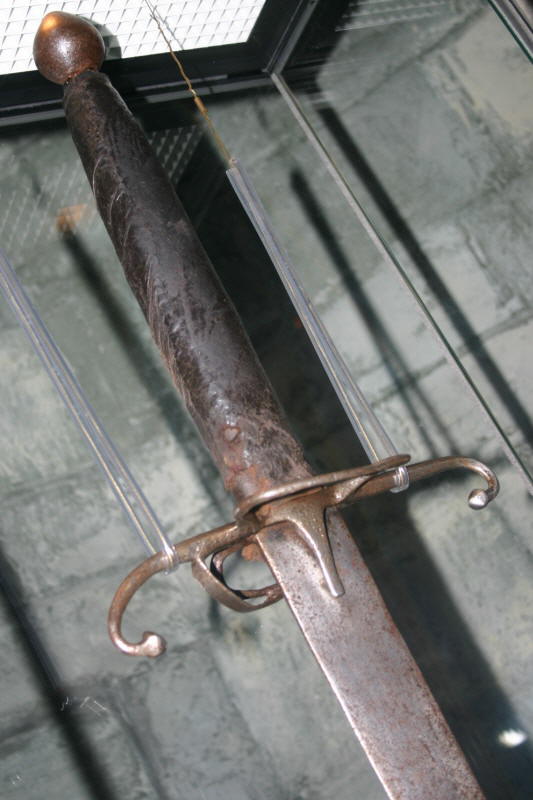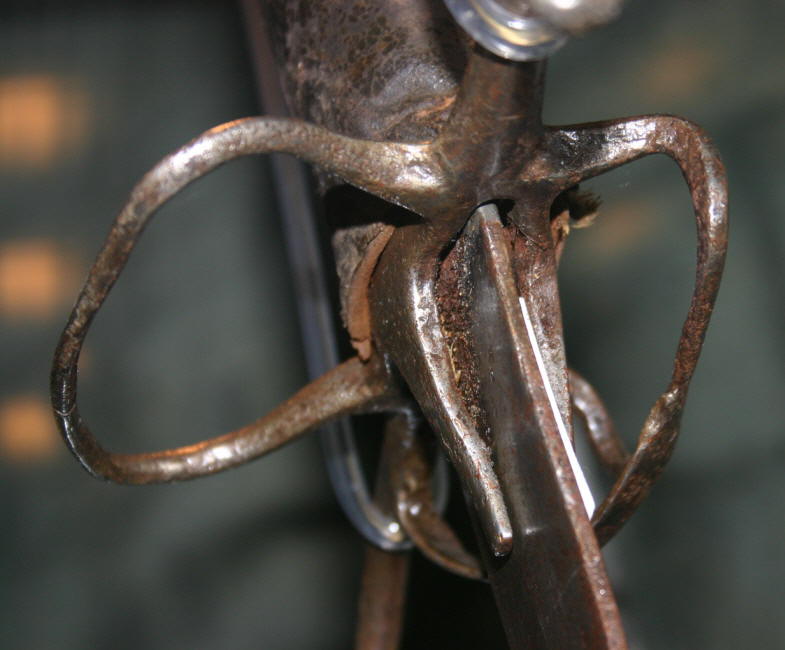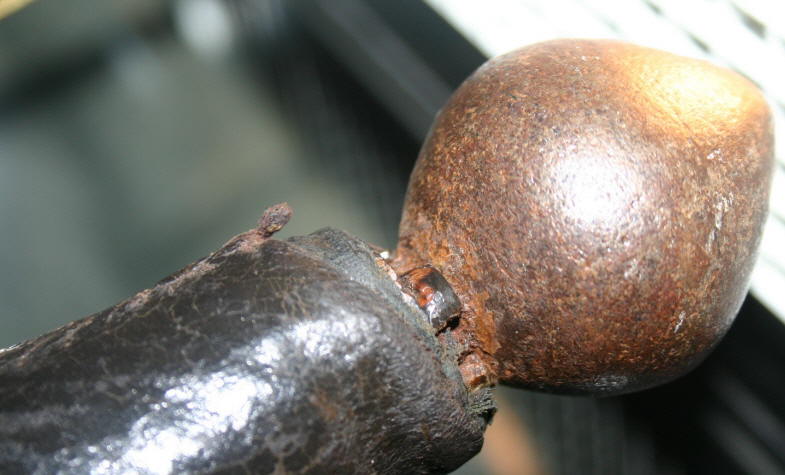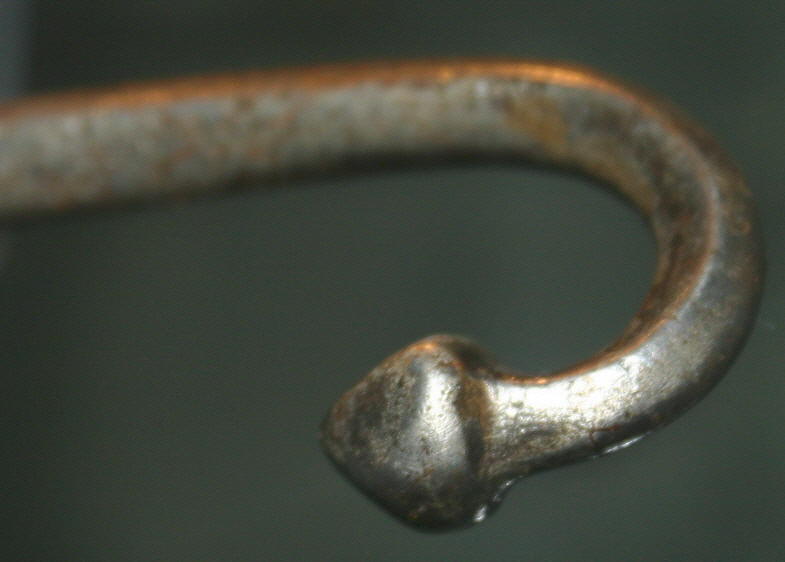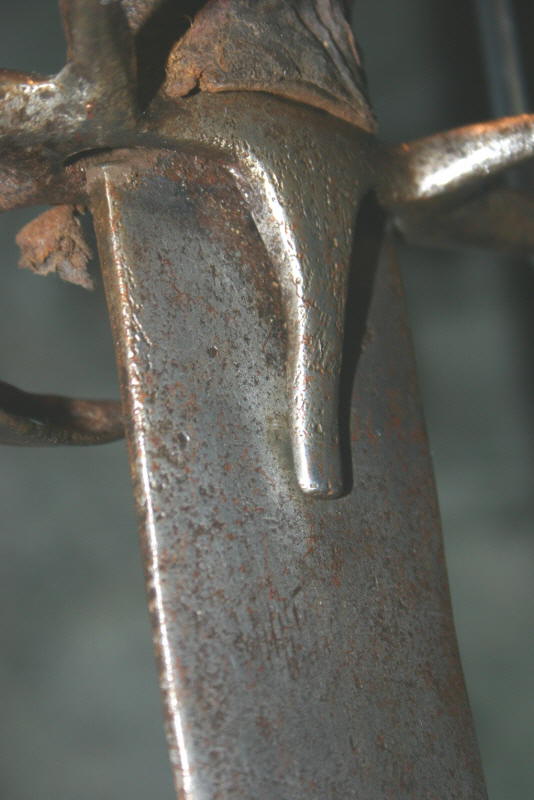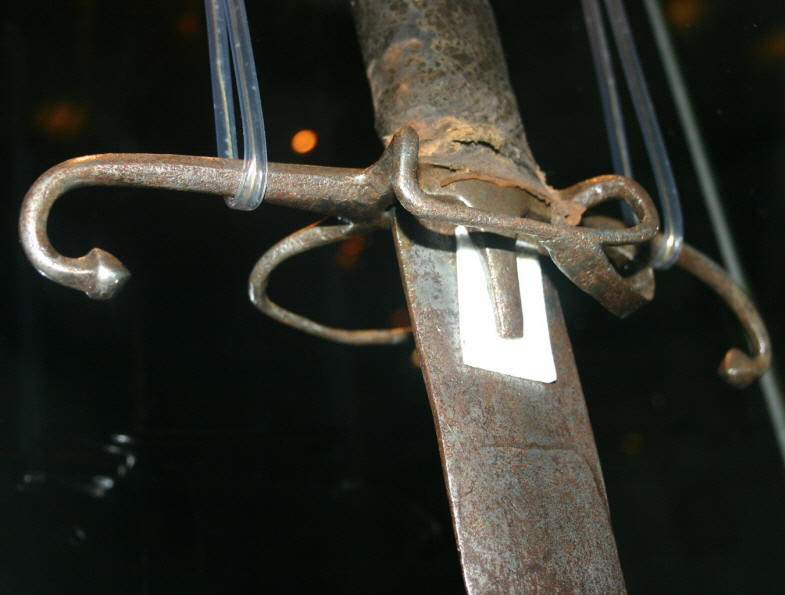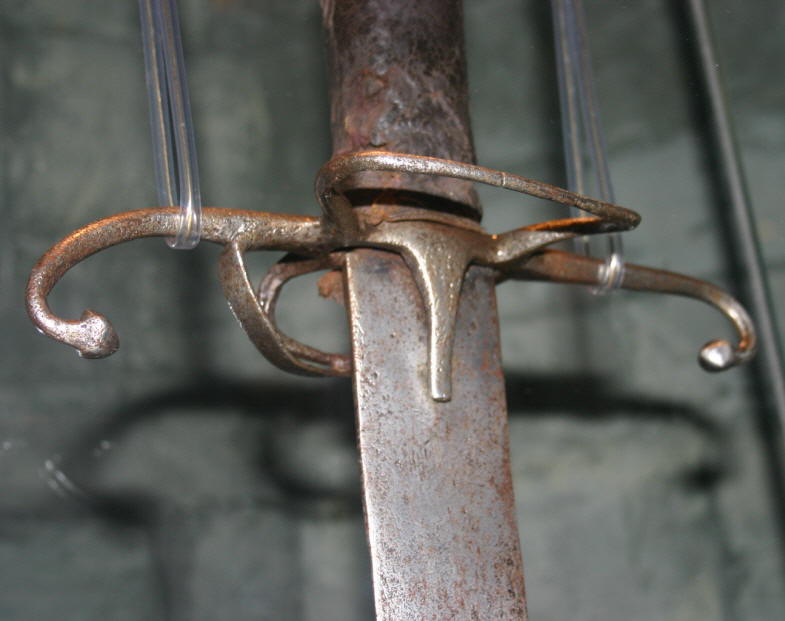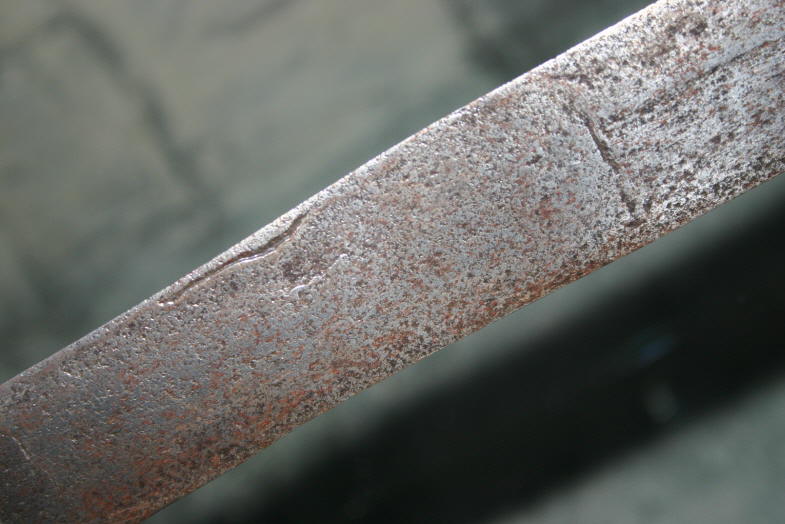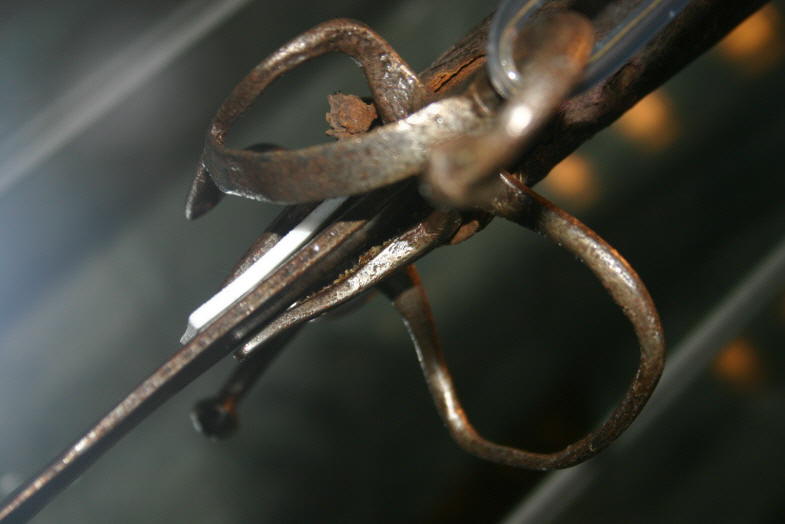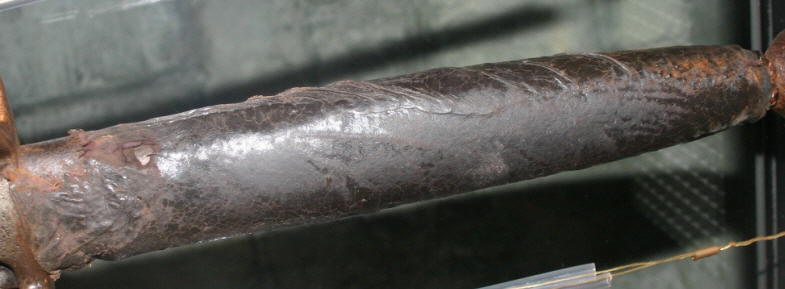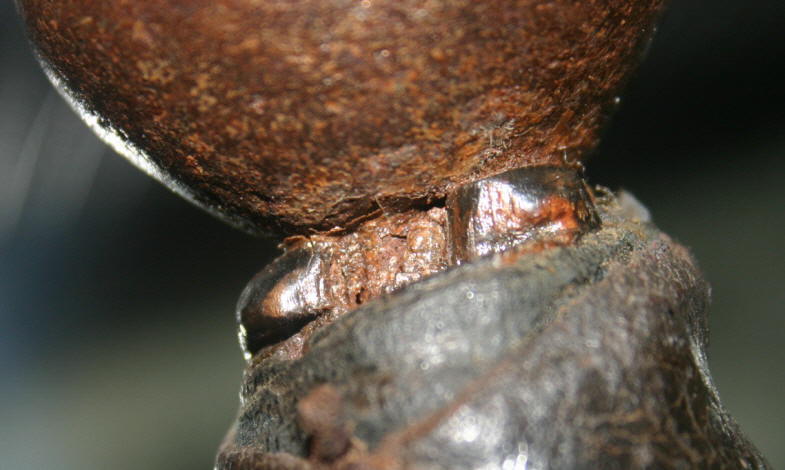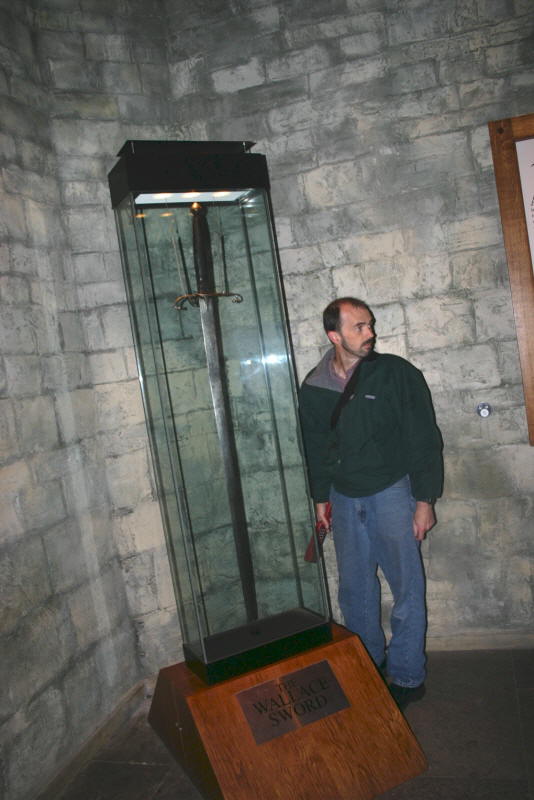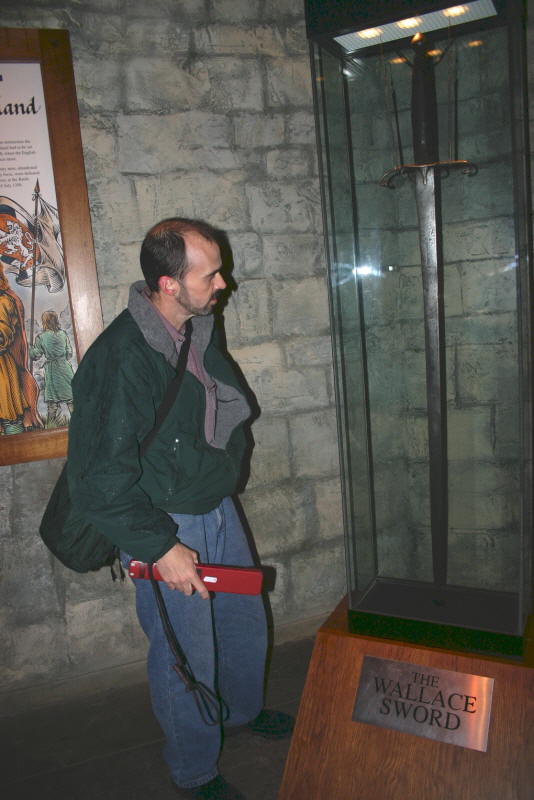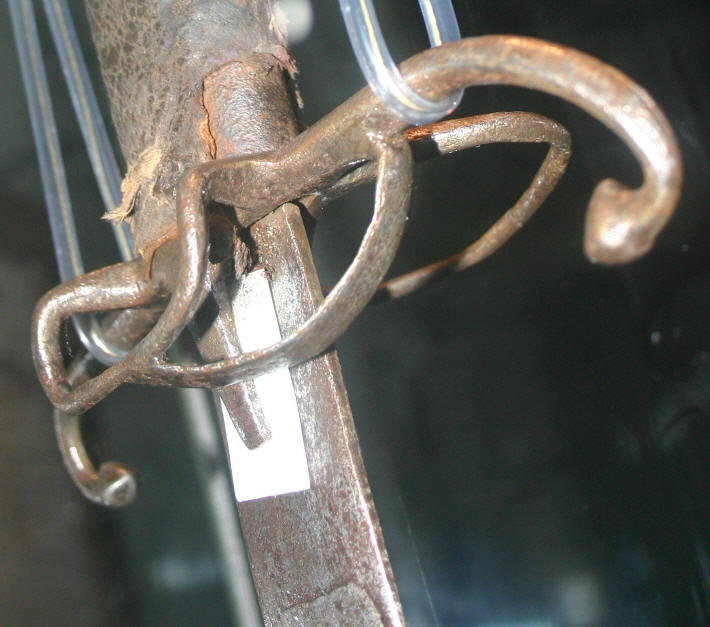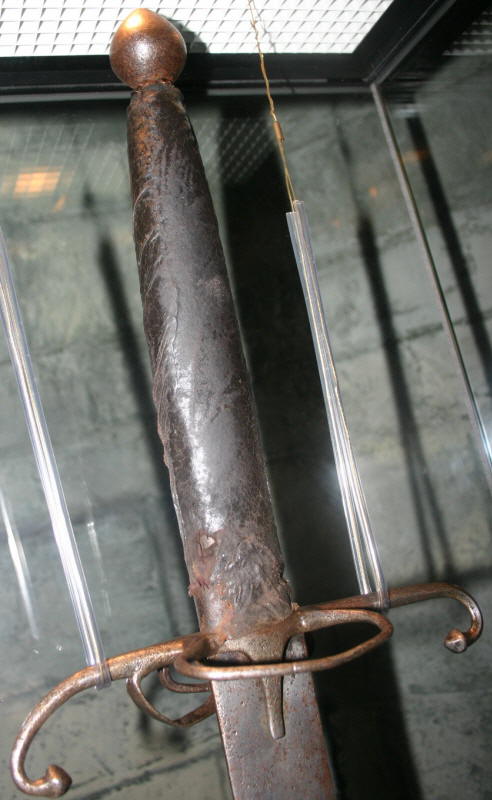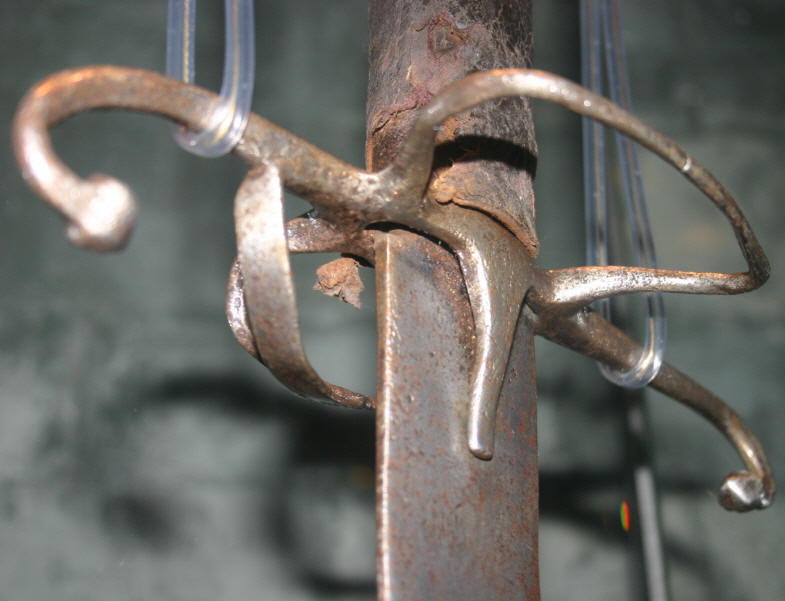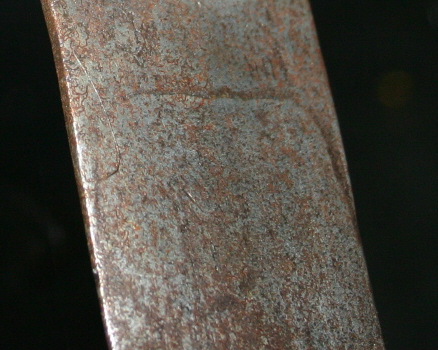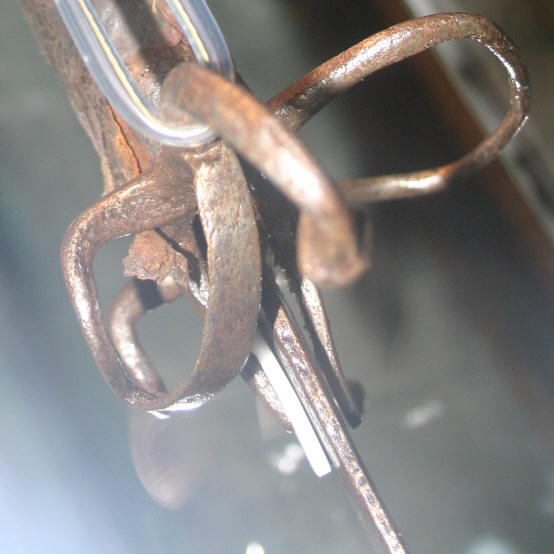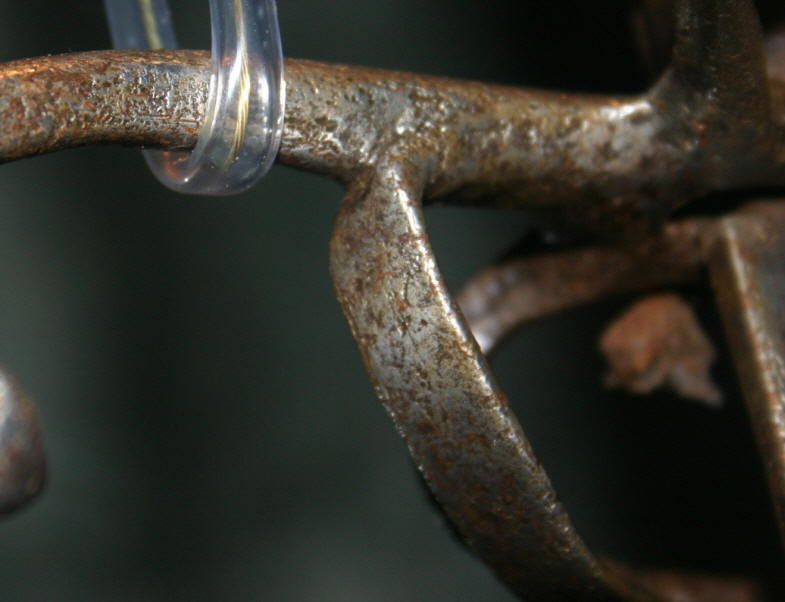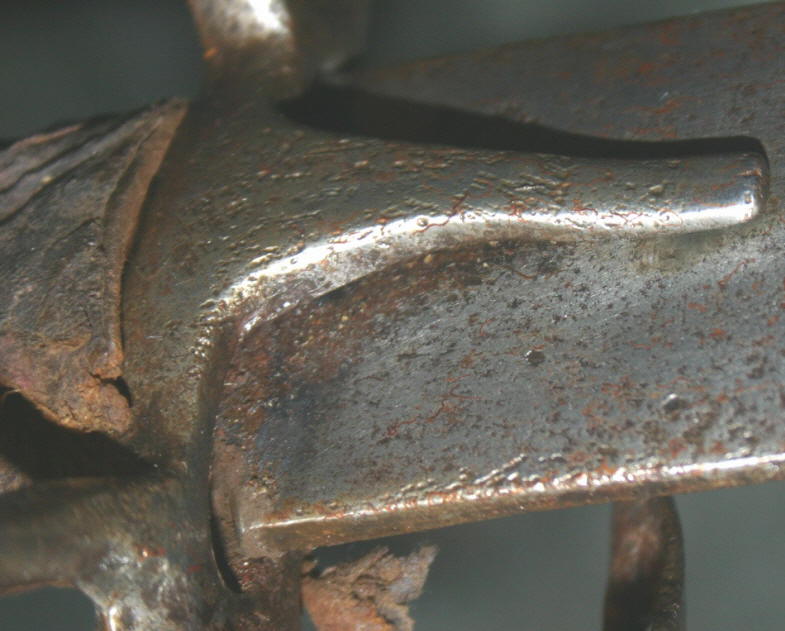Little is known about the origins of the sword that sits on display. The weapon carries no maker's mark, and has no inscriptions. The quality of the metal is poor, as the sword was made in Scotland and not in Germany or Flanders. Its great length has been repaired twice, and the weapon was rehilted many times. But this sword has a history, and its stature is said to be equal to the man who carried it: none other than William Wallace, Scotland's national hero, Guardian and Knight.
That William Wallace himself is a man of legend there is no doubt. Even when he was alive the rumors said that he was nine feet tall, breathed fire and could kill with a look. Obviously, the stories are a wee bit of Scottish exaggeration, but the size of the sword on display at the Wallace National Monument in Stirling gives an indication of Wallace's true physical size.
The two-handed sword is approximately five foot six inches in length overall, while the blade itself is around 52 inches long. It may have been longer or shorter originally, as two repairs over the centuries could have changed the sword's length. But these repairs would not have shortened or lengthened the blade dramatically. Therefore, from the size of the weapon we can determine that William Wallace was, in all probability, well over six feet tall. A shorter man could have wielded it, but the sword would have been very difficult for him to control effectively in battle.
The weapon itself weighs in at around six pounds (2.72 kg) and is a reminder that, today, we barely know about the art of swordmaking. Most would guess the weight of a weapon this size at closer to ten pounds, and since this is not a quality weapon it could weigh considerably less if it had been crafted by a master swordmaker. The blade has no fuller, which was not typical of weapons of the time, and slowly tapers down its entire length almost to the point. The handle of the sword has a pommel of iron, and the grip is padded in brown leather.
By now, some of you are wondering; how can this be the sword of William Wallace? The man died some 700 years ago! There is no proof that this is Wallace's actual sword, although it certainly has a history that lays a significant claim to the honour.
The legend of the sword begins with William Wallace's capture and execution in 1305, when the sword was taken to Dunbarton Castle. There it remained until 1505, when none other than King James IV ordered the weapon rehilted. It was given bindings of silk, a new hilt, a new scabbard and belt. The sword then returned to Dunbarton Castle and remained there until 1825, when it was sent to the Royal Armories in the Tower of London for repair. At his time the sword was examined by an expert, Sir Samuel Meyrick, who did not think the hilt matched the age of the weapon. He apparently did not know of the rehilting ordered by King James IV in 1505. The new hilt was removed and an older (15th Century) hilt was added in its place.
In 1888, the sword was transferred from Dunbarton Castle to the new Wallace Monument. Some time after this, it was again refitted with a hilt that was a copy of the one placed in 1505. During its stay at the Wallace Monument, the sword was stolen twice: once by suffragettes and another time by a man who hid it in a chimney.
Sir Walter Scott supposedly once described this sword as "Fit for archangel to wield, Yet light in his terrible hand". Even if this is not William Wallace's sword, it is still of immense historical value. The fact that the King recognized it as Wallace's sword in 1505 greatly increases the probability that it is the weapon used seven hundred years ago by Scotland's national hero, William Wallace. -- By BW February 2000
Stats (according to Björn's SFMO article)
OL - 167.6 cm (66")
BL - 132 cm (52")
BW - 57 mm (2.25")
Weight - 2.72 kg (6 lbs.)
All Photos - T. McDonald, 2005.
